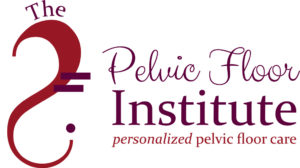Dr. Hoyte is a fellowship-trained, board-certified specialist in Female Pelvic Medicine and Reconstructive Surgery. He started the Pelvic Floor Institute in South Tampa to provide personalized, evidence-based treatments and a wide range of successful surgical and nonsurgical therapies for all types of pelvic floor disorders. Dr. Hoyte is a pioneer in 3D female pelvic imaging and is recognized as a world leader in using robotic surgery to treat female pelvic floor disorders. He started the first board-certified training program in FPMRS in Florida, where he graduated the first generation of Florida-grown FPMRS specialists.
What are pelvic floor disorders?
Pelvic floor disorders (PFDs) are a group of conditions that affect the pelvic floor. The pelvic floor includes the muscles, ligaments and connective tissue in the pelvis. It supports the bladder, uterus, vagina and rectum. Women with pelvic floor disorders may experience bulging of the vagina, urine leakage, urgency, incomplete bladder emptying, stool leakage and/or constipation, straining during bowel movements, or pressure in the vagina or rectum.
What are some of the treatment options for pelvic floor problems?
Treatment options include pessaries (incontinence or prolapse); pelvic floor physical therapy (incontinence, constipation, prolapse or pain); neuromodulation (incontinence, fecal or urinary issues); Botox injections into the bladder or pelvic floor (urgency, incontinence or pain); or surgery (prolapse, incontinence).
What are some of the unique services that you provide at The Pelvic Floor Institute?
In addition to the usual treatments, we offer therapies for women suffering from complications of prior pelvic surgery, and complications of transvaginal mesh surgery. We also offer a novel robotic cerclage procedure for women with recurrent pregnancy loss due to premature cervical dilation.
Why would it benefit a patient to see a pelvic medicine specialist instead of their regular OB/GYN?
Women who do not respond to initial treatments, and those with recurrent pelvic floor disorders or surgical complications, should see a female pelvic medicine specialist.
As a pioneer in the use of robotic surgery to treat pelvic prolapse, you have trained more than 60 surgeons in the use of the Da Vinci robotic surgery system. What are some of the latest advances in pelvic medicine that you’re excited about?
Data from clinical trials supports the efficacy of existing treatments for pelvic floor disorders and the migration away from open abdominal surgery to minimally invasive (vaginal, laparoscopic and robotic) treatments of pelvic floor disorders. Physical therapy, Botox and neuromodulation are exciting, effective treatments for some pelvic floor disorders.
Favorite vacation destination?
Siesta Key Beach in Sarasota
Favorite app?
Focus@will music streaming service

2919 W. Swann Ave. #303
Tampa, FL 33609
(813) 551-3540
mypfi.org



